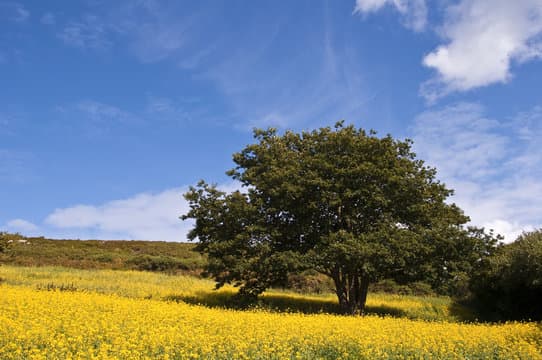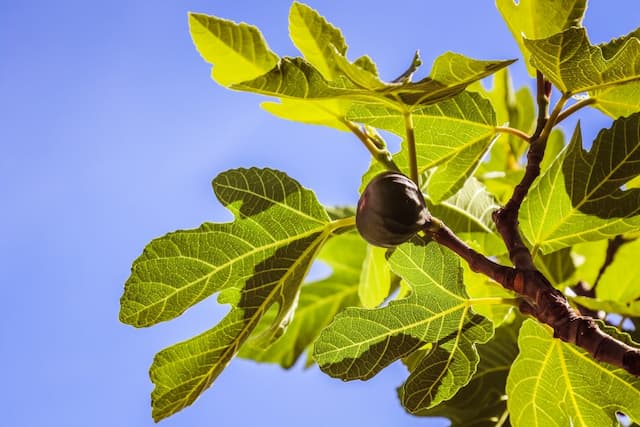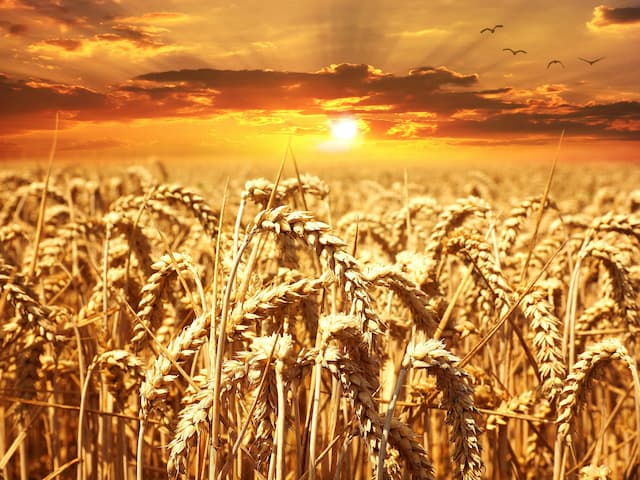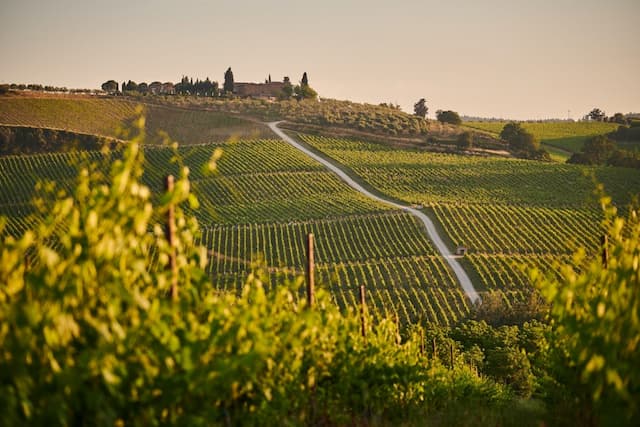
The Parable of the Mustard Seed
The Parable of the Mustard Seed is one of Jesus’s Parables of the Kingdom of Heaven, and it is found in Mark Chapter 4. When considering any teaching that deals with the Kingdom of Heaven, it might…

The Parable of the Mustard Seed is one of Jesus’s Parables of the Kingdom of Heaven, and it is found in Mark Chapter 4. When considering any teaching that deals with the Kingdom of Heaven, it might…

Do you remember the fig tree that Jesus cursed: the one that withered and died? It wasn’t just something pointless that he did out of annoyance. Not at all. He had in mind to use it for an important lesson, in fact for all time. The lesson is not merely that when you see the signs that Jesus has mentioned, you will know that the end is near. It’s not just that. You have to remember what happened to the fig tree, because that’s what Jesus really wants to bring to mind. The fig tree had put out leaves, indicating that summer was near. And so, Jesus came looking for fruit, but it had none. It was all “show” but no fruit.

The Parable of the Wheat and the Tares, also called The Parable of the Weeds Among Wheat, is found in Matthew 13. This is one of Jesus’s parables of the kingdom of heaven, and this comes after the …

Following God’s Word & Finding Christ’s Joy.

The religious authorities in Jerusalem challenged Jesus directly on the issue of his authority. Jesus didn’t tell directly them on what authority he did what he did. Instead, he told them a parable. And it’s one of the saddest, most tragic parables that Jesus ever told. In this parable, the man who planted a vineyard and built a wall around it is God. The tenant farmers who he asked to look after the vineyard represent the people of Israel, to whom he had entrusted his blessings. But when God wanted to have some of the fruit that was rightfully his, they wouldn’t give it to him. Remember how the day before Jesus had gone to find fruit on the fig tree but found none? It’s really the same story. The servants whom the owner of the vineyard sent to collect some

The Parable of the Unfruitful Fig Tree, also called the Parable of the Cursed Fig Tree, is found in Luke 13. Below is the parable in context, and we will see what we might learn from this parable. …
After Joseph (of technicolour dream coat fame) had been in an Egyptian prison for some time, we read that he had an unusual conversation with two of Pharaoh’s officials.

The Parable of the Watchful Servants is found in Luke 12:35-14. This parable is told after the Parable of the Rich Fool. Below is the parable in its entirety, then I will get into my interpretation…

By Elizabeth Prata Ye blind guides, which strain at a gnat, and swallow a camel. (Matthew 23:24) EPrata photo What I love about the puns, parables, and sayings of the ancient Palestinian world in t…

The Parable of the Rich Fool is found in Luke 12:16-21. Below is the parable and surrounding context that provides an explanation of this parable. The meaning seems straightforward, but we will see…

Enjoying the Journey strives to provide helpful Bible study and devotional materials to believers seeking to study and apply the Bible. Over the years, we have developed several study guides both individually and to accompany the Enjoying the Journey Broadcasts. Many found our Miracles of Jesus Study Guide to be helpful. We believe this resource…

Life is a story. Moses said, “We spend our years as a tale that is told.” Perhaps that is why people around the world love to hear a good story – in some way, we can all identify. We weep at tragedies, laugh at comedies, and thrill at adventures. The ancients passed along truth through…

The Parable of the Moneylender, also called the Parable of the Moneylender and Two Debtors or The Parable of the Moneylender who Forgives Unequal Debts, is found in Luke 7. The parable is short, on…

The Parable of the Wise and Foolish Virgins one of Jesus’s parables of the kingdom of heaven. There are a few symbols to look at here. In this article, we are looking at one section at a time and c…

Kanye was recently recorded saying he has a problem with Jesus because he prayed about some issues he’d experienced and Jesus did not show up

Jesus spoke differently to the crowds who came to hear him publicly than to his disciples in private. With many similar parables Jesus spoke the word to them, as much as they could understand. Jesus is kind to us, and he leads us like a good earthly father leads his little children. He takes us by the hand and leads us patiently and gently. When Jesus taught people, he only ever told them what they could understand. He knew that his disciples could understand more than the rest, so he explained the parables to them clearly, and spoke as plainly as he could.

Jesus taught using a series of parables from the world of farming: a world his listeners knew well. He uses the mustard seed as a symbol of the kingdom of God. Again, the sower is Jesus himself. In this story, he is sowing something that seems small and insignificant: mustard seeds. The mustard seed was one of the smallest seeds known to people back then. Even though the mustard seed is tiny, when it grows, it becomes a tall shrub that provides shelter for the birds.

30 But their scribes and Pharisees murmured against his disciples, saying, Why do ye eat and drink with publicans and sinners? 31 And Jesus answering said unto them, They that are whole n…

Now Jesus tells a parable about how the kingdom of God grows. It’s an important one with a beautiful lesson for us. The seed is the Word of God, and the man who scatters seed on the soil is Jesus. We’ve seen previously that we are the soil on which Jesus scatters his Word, and of course, we want to be the good soil. The Word of God is powerful in and of itself. That’s why, once the seed has been scattered, it grows and develops by itself. The first lesson of this parable is this “all by itself” principle: that if we let God do his work in our lives, there’s no need for us to do the work. If we are the willing “the good soil,” then God’s work in our lives will happen “all by itself.”

The disciples have been thinking that the parables of Jesus are too mysterious: too hard to understand. But now Jesus tells them that’s not the way it is at all. Jesus explained the Parable of the Sower, but his disciples didn’t understand the meaning of this, or his other parables. Here, Jesus tells them that his parables are actually meant to shine a light on things that are hard to understand. Jesus says that his teachings are like a lamp that needs to be lifted up high, so its light might shine everywhere and illuminate every dark corner.